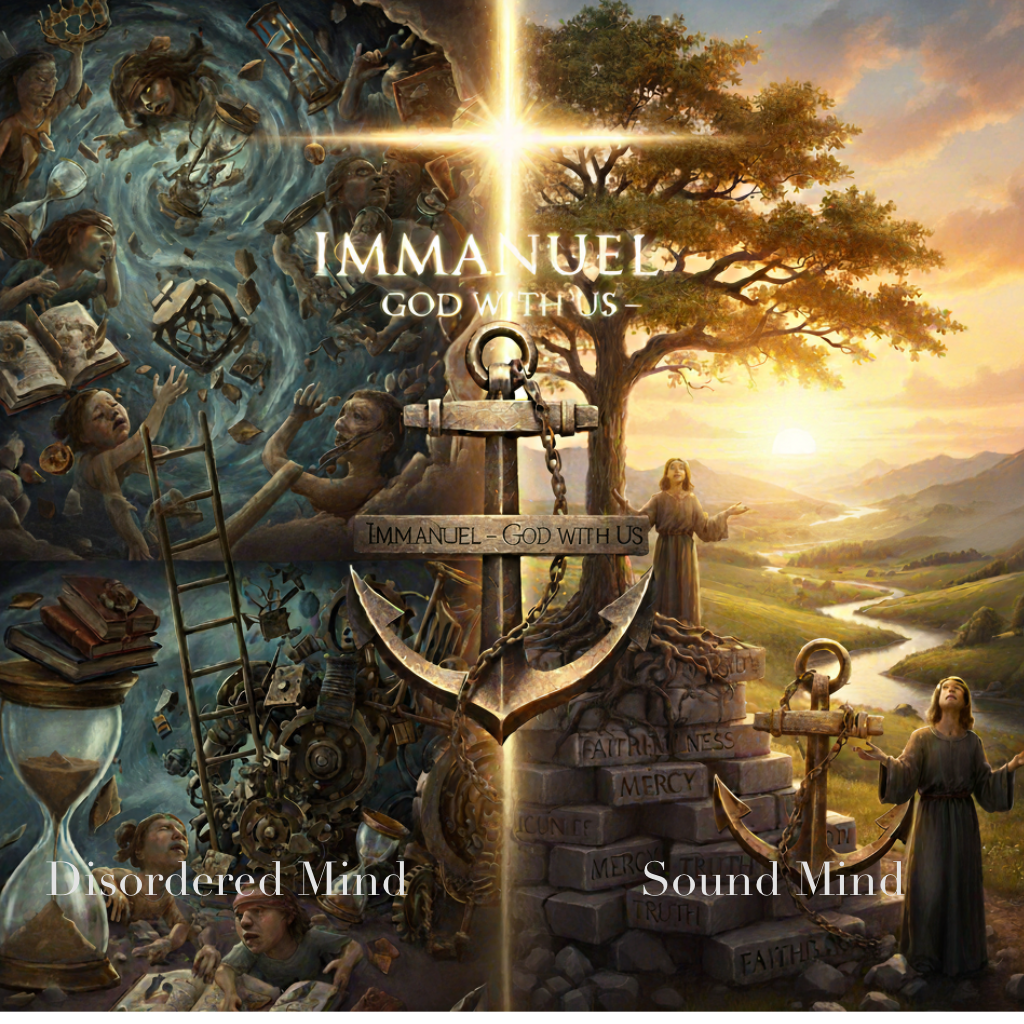
Hope in Darkness and Sunshine
King Ahaz faced catastrophe on every side. Enemy nations defeated and plundered Judah. Two kings allied against him in military invasion, terrifying Ahaz and his people. When he sought help from the Assyrians, they weakened rather than strengthened his position. His hope was fixed on human solutions.
It was during this crisis that Isaiah delivered God’s message: don’t be afraid, because the invasion will not succeed. To confirm this promise, the prophet told Ahaz to ask for a sign. He refused! In spite of his unbelief, God gave this sign: “Behold, a virgin shall conceive, and bear a son, and shall call his name, Immanuel” (Isa. 7:14). This glorious prophecy of Jesus—God taking on flesh and blood—rolled off Ahaz like water off a duck’s back. His hope remained fixed on his own strategies. Twenty-seven hundred years later, Immanuel—God with us—still works to dislodge rival hopes from every human heart.
In dark seasons of life, hope can be elusive. The circumstances of life press in—suffocating and unrelenting; a loved one passes and the silence is deafening; a diagnosis gnaws at your morsel of peace; guilt and shame from yesteryear cast a long shadow. Will you make it through today? The next hour? Worry promises relief. Maybe another slow-motion, frame-by-frame analysis will provide the answers. Recycling past troubling or traumatic experiences is an exercise of the mind attempting to reconcile faith in God with living in a broken world. Hard experiences are real and indelibly influential, but worry is a false hope. At this juncture, Immanuel seems preposterous, far-fetched, even irrelevant. He is—but only if you are deluded by false hope.
False hope is often grounded in human invention wedded to potential and deceit. The promise of Immanuel was given to a deluded king both to correct his error and to point him to Living Hope. We have no record that he redirected his hope. Immanuel has come. He is the light in the dark seasons. False hope will invite your participation, but only Immanuel is reliable. Trusting Him supremely provides enduring hope.
In the bright seasons of life, hope can be misplaced. Plans fall into place like clockwork; the project gets completed with time to spare; the grade is better than expected; an antibiotic takes care of it; two dresses sewn in one day; the last payment on the mortgage is made; the test results are positive—a baby is on the way; the foreseeable forecast is sunshine. At this juncture, Immanuel seems like an addition, a crutch, or a genie. He is—but only if He’s been displaced.
Blind and deluded hearts attempt to play God by shifting Him from His rightful place. This exercise does not change reality but indicates a disordered mind. Restoring God to His rightful place results in a sound mind. Good outcomes in plans, grades, treatments, accomplishments, goals, and succeeding generations are dependent on the existence, faithfulness, and mercy of God. These truths are the bedrock of sound Christian faith and the basis of true hope. A person whose life is grounded in these realities has enduring hope, even when circumstances change.
Immanuel—God with us. He brought a message of hope and embodies the hope. He’s hope in a dark place and hope that upholds the sun.
Where is your hope anchored today? In the darkness, are you recycling worry, grasping for control, or trusting in your own analysis to deliver peace? In the sunshine, have you quietly displaced God, attributing your success to your own competence or good fortune? Both errors reveal the same problem: rival hopes competing for the place that belongs to Immanuel alone.
The gospel call is clear: examine your heart and dislodge every rival hope. Stop trusting in worry’s false promises. Stop playing God with your successes. Instead, anchor your hope supremely and solely in Immanuel—the One who is reliable in every season, the One upon whom your very existence depends. Whether you face today’s darkness or bask in today’s sunshine, Christ is your enduring hope. Trust Him as such.
–Ben Waldner
